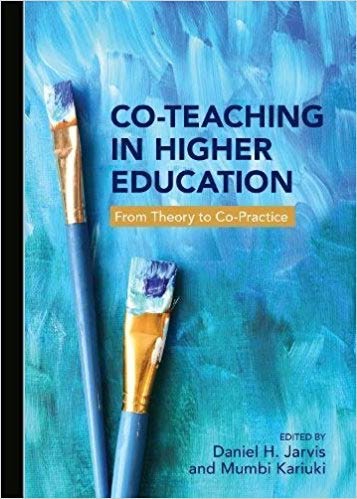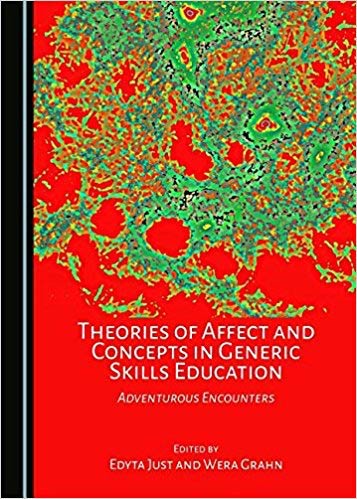Publications
CO-TEACHING IN HIGHER EDUCATION: FROM THEORY TO CO-PRACTICE
 Edited by Daniel Jarvis and Mumbi Kariuki
Edited by Daniel Jarvis and Mumbi Kariuki
University of Toronto Press, Scholarly Publishing Division © 2017
Co-Teaching in Higher Education, edited by Daniel Jarvis and Mumbi Kariuki, brings together an international group of educators and scholars to examine the theoretical frameworks and practical experiences relating to co-planning, co-teaching, and co-assessing at the post-secondary level.
Co-teaching practices at the elementary and secondary school levels have been widely documented. This collection explores topics that will enable post-secondary instructors to maximize their courses’ potential including undergraduate projects, graduate level co-teaching, pair and group co-teaching, co-taught single-subject courses, and innovative cross-curricular experiments. Contributors share their insights addressing key factors such as logistics, resources, administrative support, Ministry initiatives, and academic freedom. Jarvis and Kariuki have created an indispensable resource that provides the reader with an informed perspective on the realities of creating and sustaining rich co-teaching experiences at the university level.
THEORIES OF AFFECT AND CONCEPTS IN GENERIC SKILLS EDUCATION
 Editor(s): Edyta Just, Wera Grahn
Editor(s): Edyta Just, Wera Grahn
Contributors: Line Henriksen, Erika Johanna Kvistad, Sara Orning, Sal Renshaw, Renée Valiquette, Malou Juelskjær, Sigrid Schmitz, Anna Lundberg, Ann Werner, Beatriz Revelles, Olga Cielemecka, Olga Plakhotnik, Nina Lykke;
During the last few years, the concept of generic skills and competences has become widespread across universities. An introduction to generic competences is, as such, important because it enables redefinition of educational goals and may positively rearrange forms of interaction in classes. It also indicates that education should inspire students to develop and use critical and creative forms of thinking, feeling and doing. On the one hand, the need to promote generic skills can be seen as driven by neoliberal desire. On the other, however, generic competences can enable students to think, feel and act differently, but also respect and welcome various forms of life and ways of living. Responding to the growing need to reflect upon generic competences, this book contributes to the various ways of conceptualising generic skills and the methods in which they might be acquired. The volume engenders adventurous encounters between different theories, which predominantly come from the feminist conceptual framework, that result in appealing meanings of affect and concepts. It also experimentally explores and discusses ways in which theories of affect and concepts may complicate understanding of generic competences and inspire generic skills-oriented education. Consequently, this collection revitalizes the concept of generic skills, but also advocates daring pedagogical practices that invigorate the meaning of and approach to teaching and learning in present landscapes of higher education.
